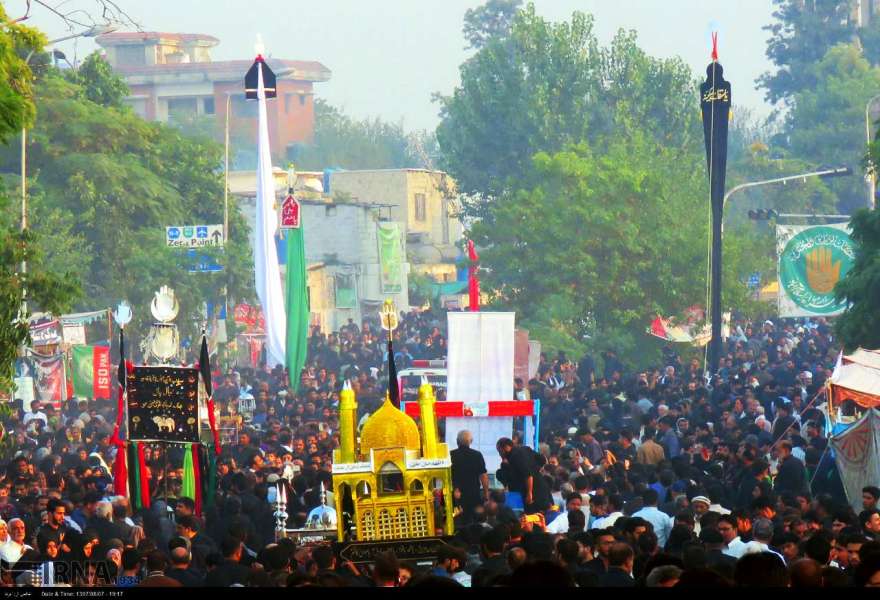
The day marks the culmination of a 40-day mourning period after the 10th of Muharram, the martyrdom date of Hazrat Imam Hussain (AS) and his 72 faithful companions on 680 A.D.
The battle was fought on the plains outside Karbala, a city in modern Iraq that’s home to the Imam’s shrine which is a sacred sanctuary for Shia Muslims. Shias account for 20 percent of the Muslim population in Pakistan and the country is home to the second largest Shia population after Iran.
Imam Hussain's (AS) uprising in Karbala is regarded as the symbol of resistance against oppressors by Muslims, as the grandson of Islam's Prophet Mohammad (PBUH) with a small troop and his relatives stood up against injustice.
Shias account for 20 percent of the Muslim population in Pakistan and the country is home to the second largest Shia population after Iran. However the Sunni population in Pakistan also observes the holy Moharram with religious spirit.
Mourning processions were taken out and religious gatherings were held in all big or small cities and towns of the country to pay homage to the great sacrifice rendered by Hazrat Imam Hussain (AS) and his companions in Karbala.
Foolproof security arrangements were made to provide security to Arbaeen processions across Pakistan.
Extra contingents of paramilitary Rangers, police and police commandos were deployed along the routes of the processions and Imambargahs in different cities. The processions were monitored through command and control centers.
The religious scholars in their speeches on the occasion highlighted the teachings of Hazrat Imam Hussain (AS) and various aspects of Karbla tragedy.
Thousands of people distributed ‘niaz’ (food, milk, soft drinks and water) to participants of the mourning processions.
Hundreds of thousands of pilgrims from Pakistan also went to the holy city of Karbala and Iran, to mark Arbaeen. The Embassy of Iran in Pakistan took extra measures to facilitate more number of pilgrims going to Iran and Iraq.
272**6125**1420
Follow us on Twitter @IrnaEnglish
 solhkhabar | Peace International News Agency Peace International News Agency , Peace News , International Agency News of Peace
solhkhabar | Peace International News Agency Peace International News Agency , Peace News , International Agency News of Peace